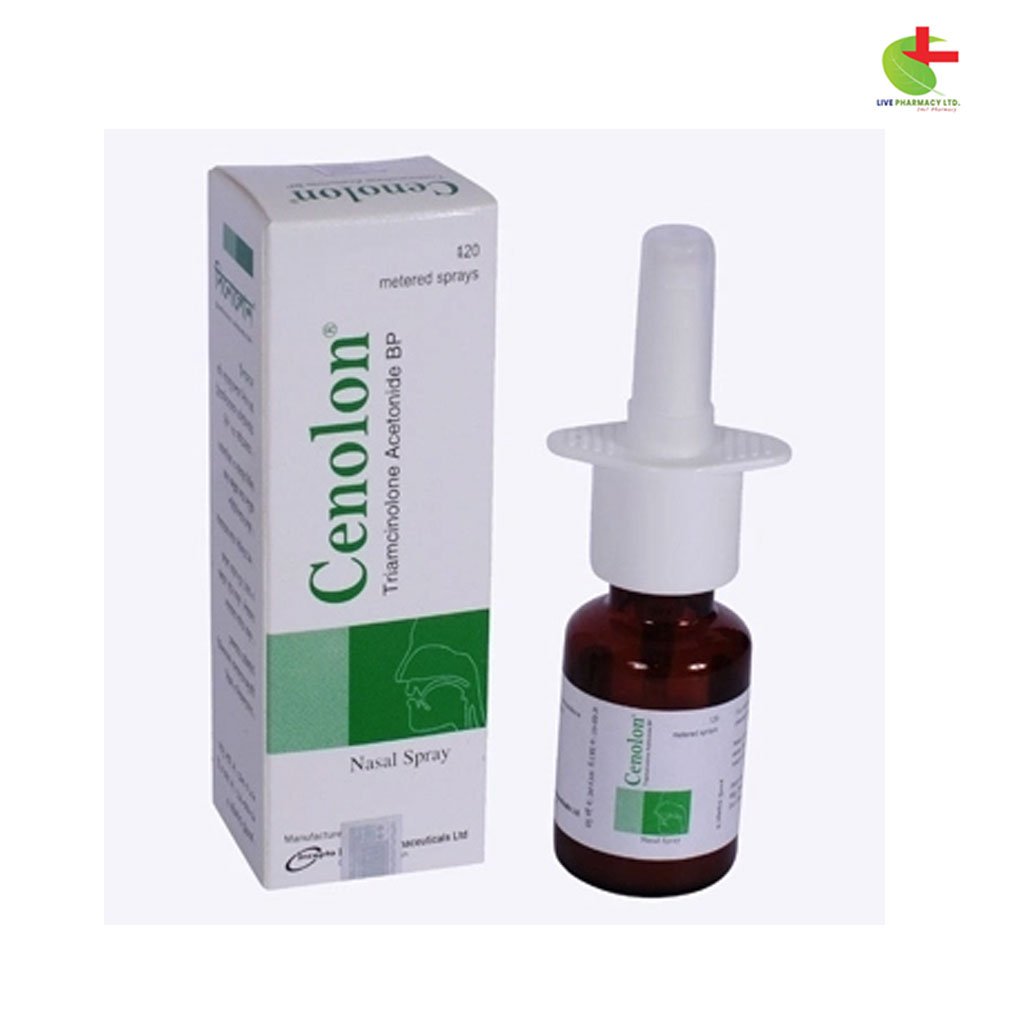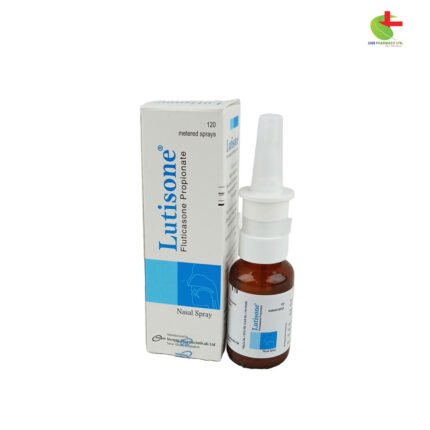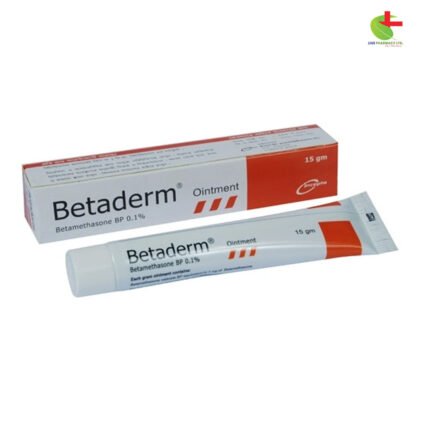Cenolon Nasal Spray
200.00৳ Nasal Spray
- Cenolon Nasal Spray is used to treat and prevent symptoms of allergic rhinitis, such as nasal congestion, sneezing, and runny nose in adults and children aged 6 years and above.
- It contains Triamcinolone Acetonide, a potent corticosteroid that reduces inflammation and provides relief from allergy-induced nasal discomfort.
- The spray is effective in managing both seasonal and perennial allergies.
- Dosage and administration should follow a healthcare provider’s recommendation for optimal results.
 Brand
Brand
|
Incepta Pharmaceuticals Ltd |
|---|---|
 Generics
Generics
|
Triamcinolone Acetonide |
 Type
Type
|
Nasal Spray |
Indications
Cenolon nasal spray is prescribed for the treatment and prevention of nasal symptoms caused by seasonal and perennial allergic rhinitis in both adults and children aged 6 years and older.
Use as directed by a registered healthcare provider.
Pharmacology
Corticosteroids work through their anti-inflammatory properties, which are believed to be mediated by lipocortins and phospholipase A2 inhibitory proteins. These proteins reduce the production of prostaglandins and leukotrienes by inhibiting arachidonic acid. Initially, glucocorticoids bind to glucocorticoid receptors, which then move into the cell nucleus and affect gene expression, both positively and negatively. Corticosteroids suppress immune function by lowering lymphatic system activity, reducing immunoglobulin and complement levels, inducing lymphocytopenia, and interfering with antigen-antibody binding.
Triamcinolone Acetonide, a potent derivative of Triamcinolone, is roughly 8 times more powerful than prednisone. Intranasal application of Triamcinolone Acetonide effectively treats allergic symptoms like watery nasal discharge (rhinorrhea), nasal congestion, postnasal drip, sneezing, and throat itching.
Dosage
- Adults and Children (12+ years): The standard dose is 220 µg, administered as 2 sprays per nostril once daily. After symptom control, maintenance can be achieved with 110 µg (1 spray per nostril daily). The lowest effective dose should always be used to maintain symptom control.
- Children (6-12 years): The recommended dose is 110 µg, applied as 1 spray per nostril daily. Not suitable for children under 6 years of age.
Always follow the guidance of a registered healthcare professional.
Administration
To properly use Cenolon Nasal Spray:
- Shake the bottle gently and remove the dust cover.
- Hold the spray with your thumb underneath and your forefinger and middle finger on either side of the nozzle. Press down until you see a fine mist. If it’s your first time or you haven’t used it for over a week, prime the pump by pressing several times until mist appears.
- Clear your nostrils by gently blowing your nose.
- Close one nostril, insert the applicator into the other nostril, and tilt your head forward slightly while keeping the spray upright. Breathe in through your nose and press the applicator to release the spray.
- Exhale through your mouth.
- Repeat the process in the other nostril if necessary.
Cleaning Instructions:
Clean the nasal spray weekly by following these steps:
- Remove the dust cover.
- Gently remove the nasal applicator.
- Wash both the applicator and dust cover with warm water.
- Shake off excess water and let them dry naturally.
- Once dry, reattach the applicator and replace the dust cover.
Always follow your healthcare provider’s instructions.
Contraindications
No specific contraindications have been identified, but caution is advised for individuals with known hypersensitivity to any of the formulation’s components.
Side Effects
Common side effects associated with Cenolon use include nasal and throat irritation, headaches, and rhinitis. Other nasopharyngeal issues reported during trials include nosebleeds, nasal dryness, congestion, and sneezing, although these occurred at similar rates with a placebo. Rare cases of nasal septal perforation have been observed with intranasal corticosteroids.
Pregnancy & Lactation
There are no well-controlled studies of Triamcinolone in pregnant women, and animal studies suggest a potential teratogenic effect. Triamcinolone should only be used during pregnancy if the potential benefits outweigh the risks to the fetus. It is unknown if Triamcinolone is excreted in human breast milk.
Precautions & Warnings
If there is concern about adrenal impairment, caution is needed when transitioning from systemic steroid therapy to Cenolon. Localized infections of the nose and pharynx with Candida albicans have rarely occurred with intranasal administration of Cenolon. If infection develops, local treatment may be required, and discontinuation of Cenolon should be considered. Corticosteroids can delay wound healing, so use caution if there has been recent nasal surgery, trauma, or ulcers.
Overdose
Acute overdose with intranasal corticosteroids like Cenolon is unlikely due to the limited amount of active ingredient in each dose.
Therapeutic Class
Corticosteroids, Glucocorticoids, Nasal Steroid Preparations
Storage Conditions
Store below 25°C, protected from light and moisture. Keep out of the reach of children.













Reviews
There are no reviews yet.